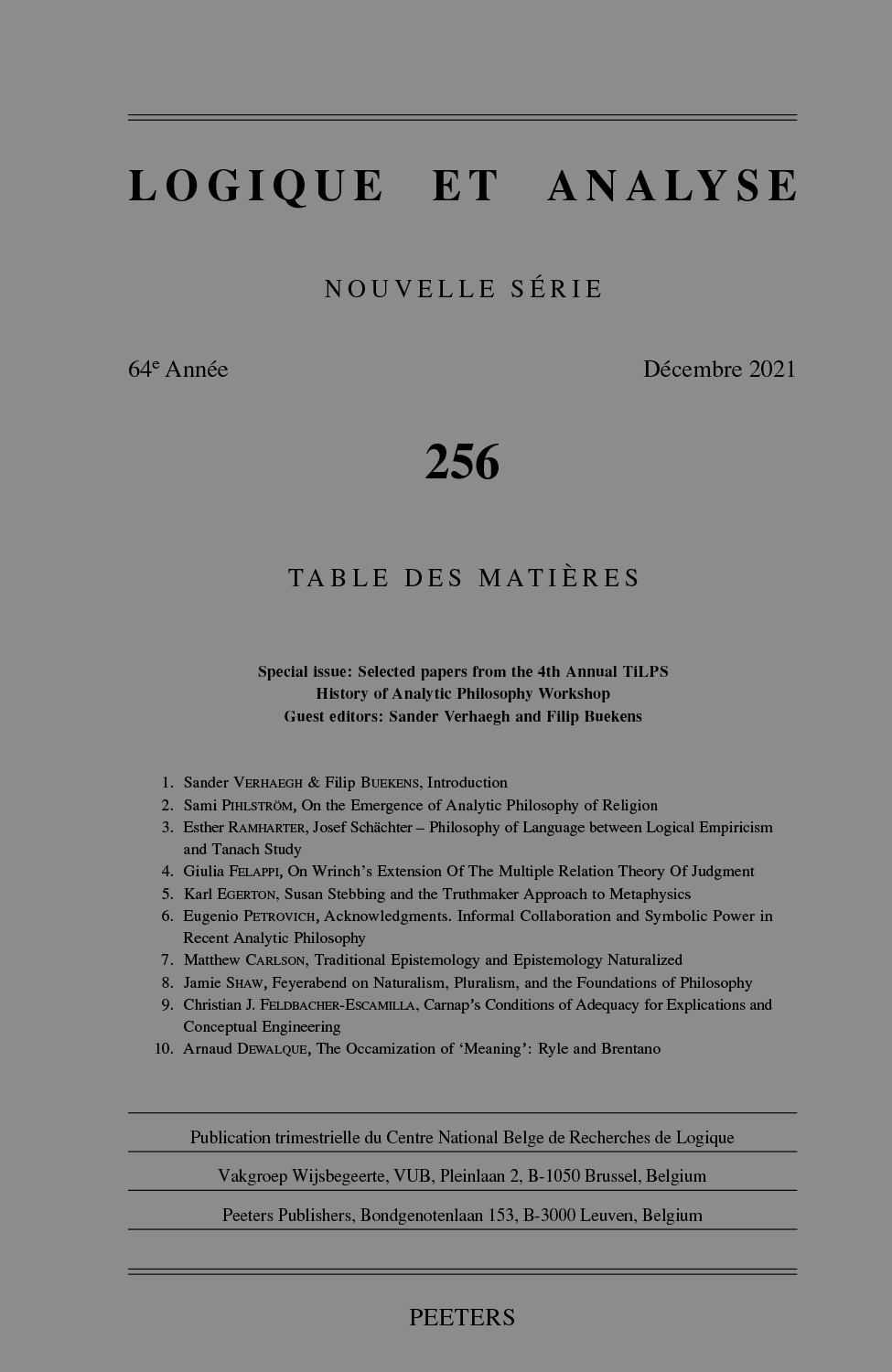 previous article in this issue previous article in this issue | next article in this issue  |

Preview first page |
Document Details : Title: A New Argument for Distinguishing Rejection and Denial Author(s): KRAFT, Tim Journal: Logique et Analyse Volume: 239 Date: 2017 Pages: 285-299 DOI: 10.2143/LEA.239.0.3237155 Abstract : According to a common philosophical methodology, philosophical debates about some topic F should begin with clarifying what Fs are before addressing more substantive questions including the question of whether Fs actually exist or are possible. This paper discusses a challenge to this common methodological assumption with epistemological debates including those about closure, KK, infallibilism and internalism as the primary case study. On the one hand, these debates are supposed to be about whether some epistemic principle is true or false; I call this assumption Bipolarity. On the other hand, denying an epistemic principle is supposed to entail neither the truth nor the falsity of scepticism; I call this assumption Neutrality. These two assumption cannot both be true: If scepticism is true, i.e. knowledge (of some target class) is impossible, it is vacuously true that all cases of knowledge (of the target class) are closed, infallible, etc. Hence, the falsity of any epistemic principle entails the falsity of scepticism. This result is puzzling because it rules out rejecting closure, infallibilism, etc. independently of rejecting scepticism. To solve this puzzle I propose giving up Bipolarity by distinguishing between rejection and denial. |
 |


